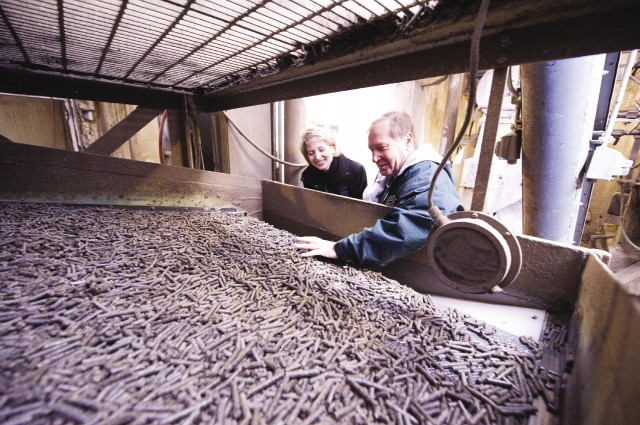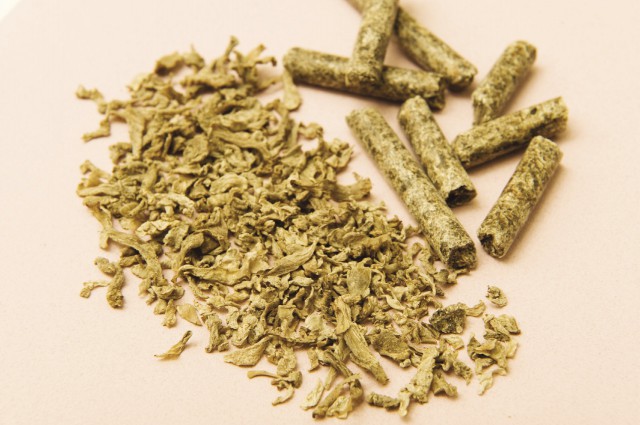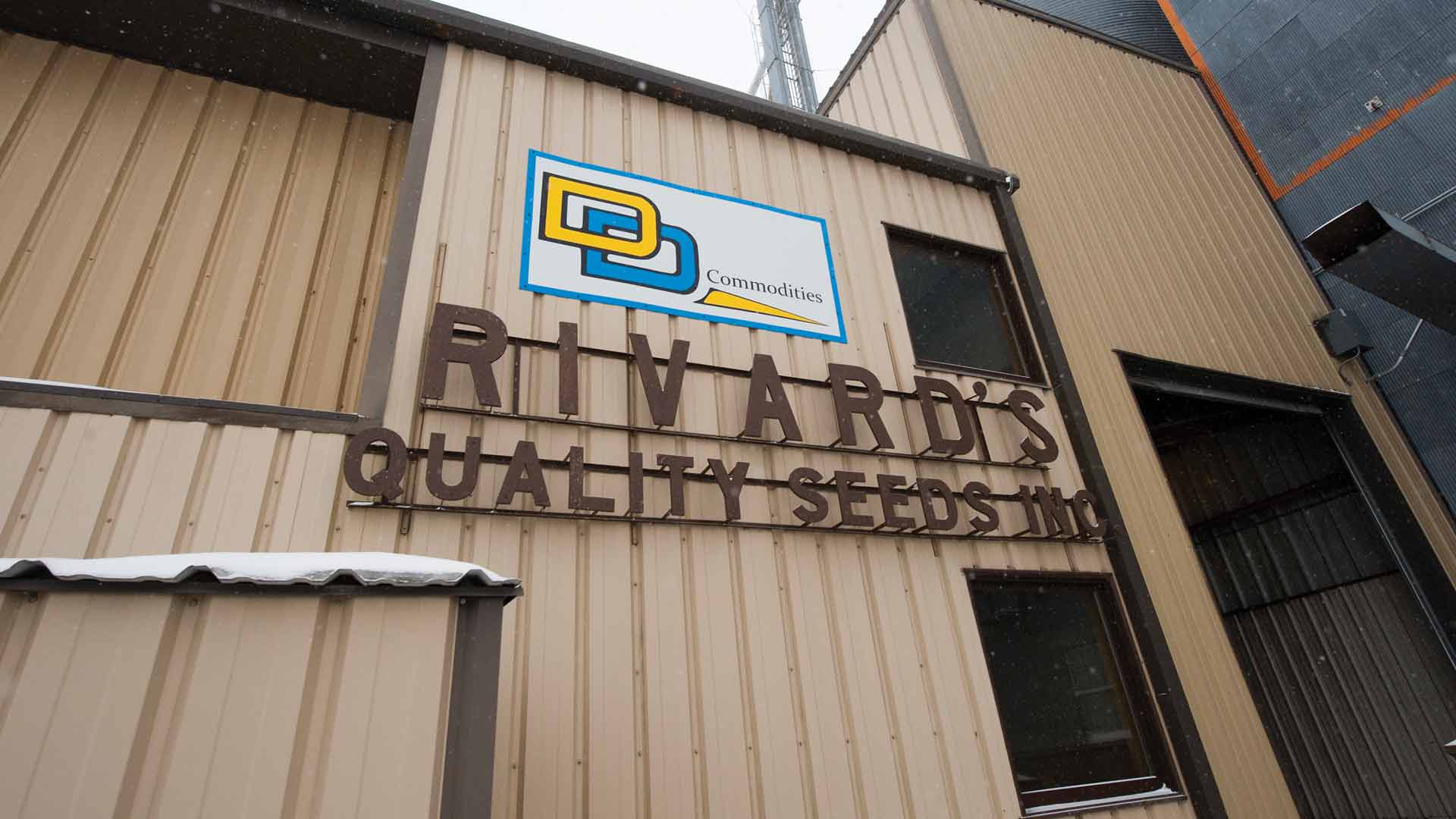— by Jonathan Eisenthal
photos by Rolf Hagberg
For 41 years Rivard’s Quality Seeds had been one of a handful of businesses keeping the economy going in the small northwestern Minnesota city of Argyle, population 660. Finding ways to add value to agricultural products and coproducts from agricultural processing is the region’s lifeblood. Rivard’s specializes in pelleting, making loose materials dense enough to transport economically.
Over the years, Rivard’s produced mostly a beef and bison feed made from parts of wheat, barley, soybean, corn, sunflower and pea screenings left over after harvesting, often called coproducts. With the improvements made to crop/herbicide safety through biotechnology, there are fewer coproducts remaining after harvest, and this resulted in the plant not having enough resources to turn into product, which threatened the vitality of the business and a loss of five jobs in the community.
In March 2011, AURI Project Manager Becky Philipp learned of Rivard’s situation and reached out to them. She was confident there may be a way that AURI could help, and wanted to do whatever possible to keep this business in northwestern Minnesota alive. “Long-standing, staple businesses, such as Rivard’s, are very important to the economic vitality of communities, particularly small, rural communities,” says Philipp.
Glenn Rivard, co-owner of Rivard’s Quality Seed, was very receptive to AURI’s assistance. “The Rivards had given themselves a year to explore other possibilities to see if they could remain in business,” says Philipp. “AURI does a lot of work in pelleting coproducts and has a vast resource network from which to draw, so I was optimistic that we could help.”
Rivard’s Seeds in Argyle, Minn., has been able to stay in business and retain jobs thanks in part to new work pelleting beet pulp for another Minnesota business. AURI Project Manager Becky Philipp helped.

So, Philipp started networking and found a business in Greenbush, Minn., that was interested in exploring possible pelleting opportunities. She connected them with Rivard’s, and the link turned into a partnership; Rivard’s now pellets beet pulp to be shipped across the US Farm Belt and overseas, to be sold for livestock feed.
“Because of the extra volume from beet pulp, I was also able to revive the grain byproduct business I’d had for more than 40 years,” says Rivard. Thanks to the revival he was able to sell the business to D&D Commodities, Ltd., in nearby Stephen, Minn., so that the business remains vital, and continues to operate with an eye to continued growth opportunities. Rivard remains the manager of the plant.
The beet pulp will keep Rivard’s in steady operating mode for some time to come. With an eye to the future, Philipp also facilitated discussions with Rivard’s and another processing business in northwestern Minnesota, which could expand the pelleting plant’s product stream further. Going forward, AURI will continue to keep an eye out for other businesses that could partner with Rivard’s as well. “Glenn was great to work with, and we are very pleased with the outcomes of this project,” notes Philipp.
“We saved a handful of jobs,” says Rivard, expressing gratitude for all those who worked together with him to solve the problem. “We weren’t going to be able to keep on the way we were…we needed a certain volume of business to keep the doors open. A big thank you to AURI for helping us accomplish that.”

Idea to reality:
Rivard’s Seeds no longer had enough post-harvest leftovers (coproducts) to support pelleting at their plant and needed to find a way to stay in business.
AURI’s role:
AURI helped connect Rivard’s with another business that had product for them to pellet.
Outcomes:
Rivard’s retained five jobs, sold business to D&D Commodities, Ltd. and remains profitable with an eye to the continued growth opportunities.

